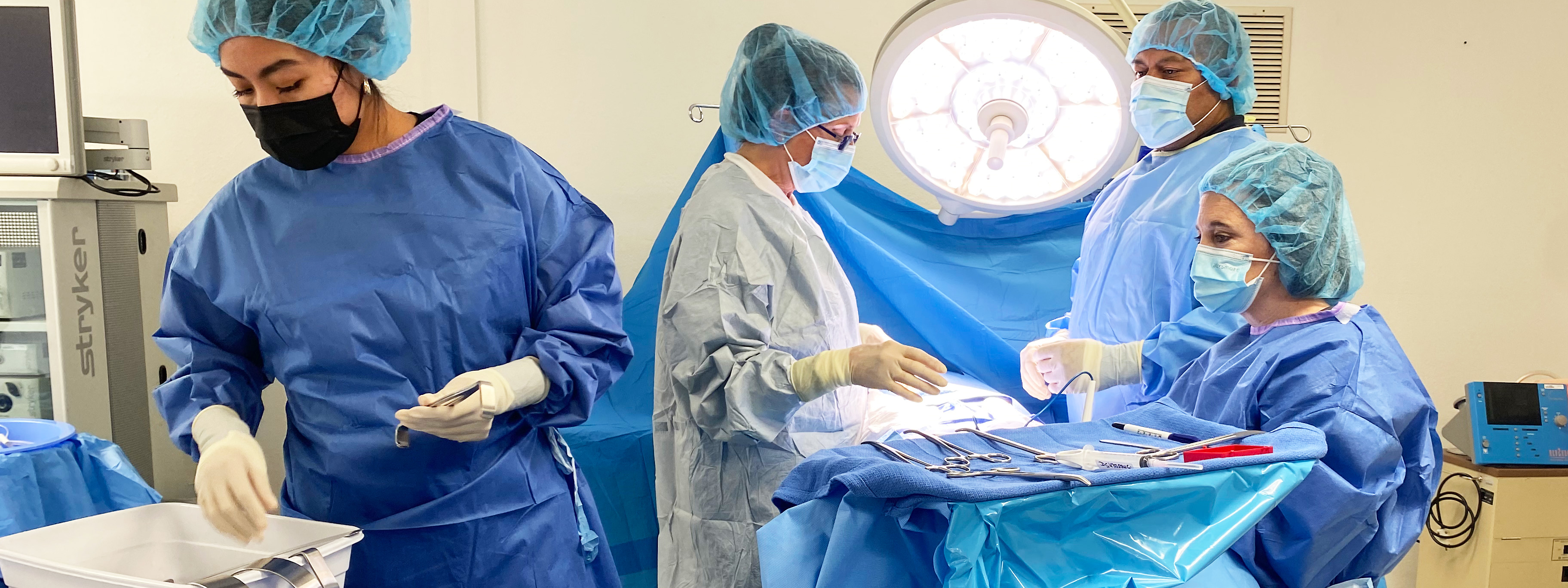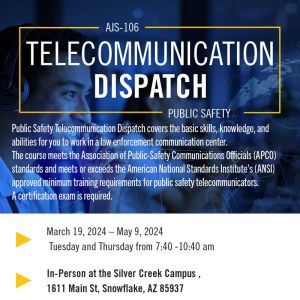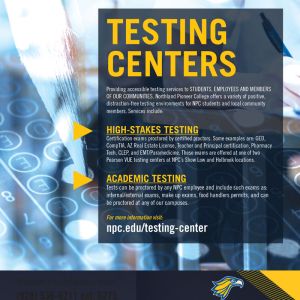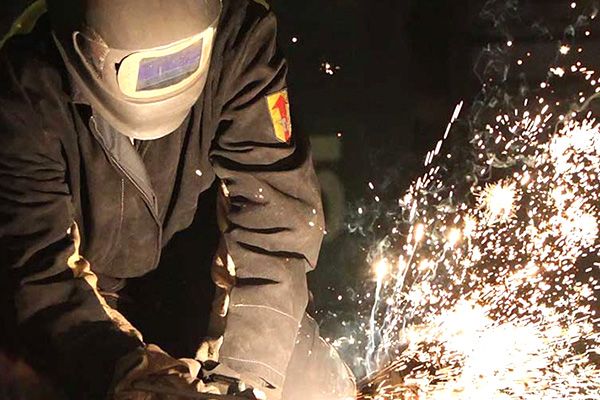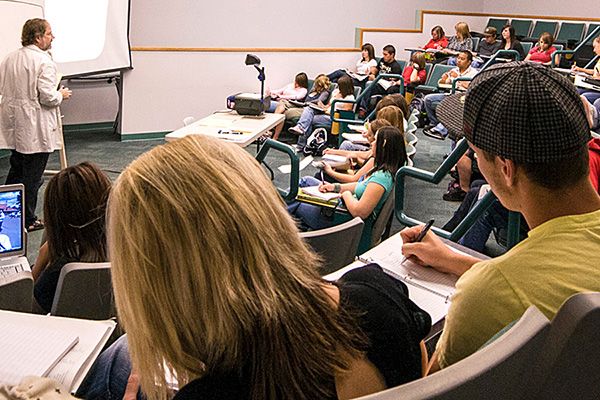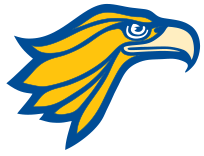Surgical technologists assist in surgical operations. They prepare operating rooms, arrange equipment, and help doctors during surgeries.
Before an operation, surgical technologists prepare the operating room by setting up surgical instruments and equipment. They also prepare patients for surgery by washing and disinfecting incision sites, positioning the patients on the operating table, covering them with sterile drapes, and taking them to and from the operating room. Surgical technologists prepare sterile solutions and medications used in surgery and check that all surgical equipment is working properly. They help the surgical team put on sterile gowns and gloves.
During an operation, surgical technologists pass instruments and supplies to surgeons and first assistants. They also hold retractors, hold internal organs in place during the procedure, or set up robotic surgical equipment. Technologists also may handle specimens taken for laboratory analysis.
Once the operation is complete, surgical technologists may apply bandages and other dressings to the incision site. They may also help transfer patients to recovery rooms and restock operating rooms after a procedure.
There is a high demand for certified surgical technologists. NPC, in partnership with regional medical centers, has established an Associate of Applied Science (AAS) degree program in Surgical Technology to meet this demand at the lowest tuition rate in Arizona. Opportunities are available to specialize in a variety of services such as robotics, orthopedics, plastics, trauma, cardiac, vascular, urology, gynecology, and be an integral part of a skilled surgical team!
For more information, please contact an NPC Academic Advisor. Also see the current NPC College Catalog and class schedule.
Labs and Classrooms
In addition to classroom instruction, students will complete a clinical practicum, of 760 hours shadowing a surgical tech professional in the final two semesters of the program. Students may need to travel to other partnering hospitals throughout Arizona, such as locations in Phoenix, Whiteriver, Springerville, Flagstaff, or Winslow.
Program Locations
Currently, this program is only being offered at the Show Low Campus.
- Many of the prerequisite courses are available at other NPC campus locations.
Entry Requirements
Prerequisites Required Before Admission
Before a student is considered eligible to enter the Surgical Technology Program, completion of the following prerequisites is required. Successful completion with a “C” grade or better for each class is required and a cumulative Grade-Point Average (GPA) of at least 3.0 is strongly recommended.
- HES 170 Medical Terminology • 3 credits
- HES 190 Human Body in Health and Disease • 4 credits
- Mathematics: Minimum mathematics placement of Next Gen ACCUPLACER 263 Arithmetic/Numeric; or ACT 17, or MAT 101/HES 101, MAT 109 or higher completed within three years.
Admission to the Surgical Technology Program
- Students must be admitted to the Surgical Technology Program in order to enroll in surgical technology courses.
- This program has required prerequisite courses that MUST all be completed prior to July 26 - before starting the program.
- Admission information is available through any NPC academic advisor.
- A completed Surgical Technology application (PDF) should be submitted on or before the designated deadline that is noted in the application packet. Late applicants may be accepted on a space-available basis if they meet the admission criteria, but not before applicants who submit their application on time.
- View NPC's Surgical Technology Admissions Packet.
SGT admission criteria will include: Prerequisite GPA, applicant statement and completion of program prerequisites. These factors will be weighted by the admission committee. Additionally, an applicant can be denied certification as a surgical technologist if convicted of a felony or addicted to habit forming drugs or if the application in any other way fails to meet qualifications required by law. To enter the course, a Department of Public Safety (DPS) level 1 Fingerprint Clearance Card, CPR, a current TB skin test, Hepatitis B, MMR and Varicella immunizations, and a COVID-19 vaccination or clinical agency-approved waiver may be required.
Students should note that:
- General Education and core requirements must be completed as listed on the curriculum outline in the program admission information packet.
- College credits over eight years old may be accepted with appropriate documentation and approval.
- Transfer students applying for second, third or fourth-semester admission are considered on an individual basis. Criteria include course comparables, GPA, specified examination results and recommendation from previous program director. Transfer students should call the the Allied Health Coordinator at (928) 532-6159.
Work Environment
Surgical technologists wear scrubs (special sterile clothing) while they are in the operating room. Their work may be physically demanding, requiring them to be on their feet for long periods. Surgical technologists also may need to help move patients or lift heavy trays of medical supplies. At times, they may be exposed to communicable diseases and unpleasant sights, odors, and materials.
Job Outlook
Job Outlook
Overall employment of surgical assistants and technologists is projected to grow 5 percent from 2022 to 2032, faster than the average for all occupations.
About 8,600 openings for surgical assistants and technologists are projected each year, on average, over the decade.
Potential Job Titles
- Surgical Technologist
- Operating Room Technician
Accreditation/Affiliations
Three years ago, ARC/STSA instituted a mandate effective August 1, 2021 for a minimum preparation with an Associate Degree to acquire the designation of Certified Surgical Technologist (CST).
The Associate of Applied Science (AAS) Degree in Surgical Technology prepares students for beginning employment in providing direct patient care. Admission to or graduation from the program does not guarantee eligibility for certification by the National Board of Surgical Technology and Surgical Assisting (NBSTSA). The program is applying for accreditation with the Commission on Accreditation of Allied Health Education Program (CAAHEP) Accreditation Review Council on Education in Surgical Technology and Surgical Assisting (ARC/STSA). The program is actively seeking accreditation at this time in hopes that the program will be reviewed for accreditation by the ARC/STSA in the academic 2024/2025 year during enrollment of our third, fourth and fifth cohorts. The Certified Surgical Technologist designation can only be awarded to students who complete a program that is concurrently accredited by CAAHEP during their enrollment. Under standards the accreditation CAAHEP can withhold or deny accreditation upon review of findings and recommendation of the ARC/STSA. All cohorts of Surgical Technology students taking NPC’s program, upon completion of are eligible to sit for certification as a Tech in Surgery TS-C through the National Center for Competency Testing (NCCT). Certification is not required as a Surgical Technologist to work in the State of Arizona. The college makes no representation, promise or guarantee that completion of this program assures eligibility for/or passage of any certification examination or acceptance by any state board. This program is not intended to prepare students for employment in any other state than Arizona.
Locations
Contact Information
1001 W. Deuce of Clubs
Ponderosa Center, Allied Health Offices
Show Low,
AZ 85901
Northland Pioneer College
Northland Pioneer College
CONTACT AN NPC ADVISOR!
Receive in-person or virtual Academic Advising, register for classes, learn about how you can pay for college, and get the tools you need to become a successful student.

